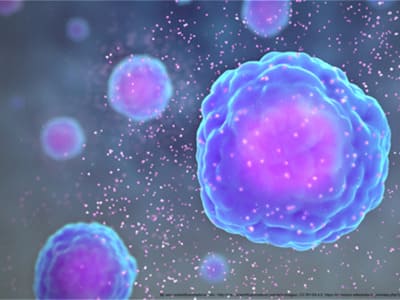Child Immunity at Birth and Maternal Immunity

Is a child's immunity at birth influenced by that of their mother, and what are the contributing factors?
Humans defend themselves against infections through innate immunity, which acts immediately against infectious agents, and adaptive immunity, which provides a later but longer-lasting protection. The immune system of newborns is described as immature in terms of the “adaptive response,” but it is still capable of reacting effectively to provide protection against infections. Each individual’s immunity develops over the years and is shaped by various exposures to environmental factors and microbial agents, whether pathogenic or not. In our study, we explored the relationship between the immune systems of mothers and their babies and identified the factors that influence them.
Subjects and Factors Studied
We characterized the immune responses of 322 mothers and 156 newborns (75 boys and 81 girls) using blood cell samples collected during pregnancy and at birth (cord blood). We analyzed the responses of dendritic cells (innate immunity and “conductors” of immune responses) and T lymphocytes (adaptive immunity) by measuring nearly thirty cytokines (soluble molecules) secreted after in vitro activation with R848 (Resiquimod) or PHA (phytohemagglutinin A). Statistical analyses evaluated the links between cytokine secretion profiles in the mothers’ and children’s cells and the factors that may influence them (age, body mass index, tobacco exposure, season, etc.).
Immune Profiles of Mothers and Babies Are Very Different
While T lymphocytes in cord blood secrete large amounts of IL-2*, those in maternal blood secrete high levels of Interferon-γ* and IL-13*. On the innate immunity side, activation triggers stronger secretions of IL-1β*, IL-6*, IL-8*, and TNF-α* in cord blood compared to maternal blood, but lower levels of Interferon-α*. Thus, the nature of both innate and adaptive immune responses to stimulation is very different between adults and newborns.
*These are the names of cytokines measured in the blood.
Identification of Factors That Influence Immunity
The quantity of immune cells present in the samples affects the amount of cytokines secreted. Our results also show that personal (e.g., maternal age, body mass index), behavioral (e.g., smoking), and environmental factors (e.g., season of sample collection) impact certain cytokine levels.
Strong Links Exist Between Maternal and Infant Innate Immunity
The innate immune profiles of mothers are predictive of their infants' profiles. For some cytokines (IL-6, IL-8, IL-10), the concentration measured after activation with R848 in maternal blood samples predicts the concentration of the same molecule in cord blood.
What Do These Results Tell Us, and What Comes Next?
These findings show that the immune system—a key factor in health—of future mothers is influenced by a range of personal, behavioral, and environmental factors, and that these factors also impact the newborn's immune system at birth, potentially affecting their ability to fight diseases. Data on exposure to numerous environmental pollutants were collected during pregnancy in the SEPAGES study, and we plan to assess their impact on maternal and newborn immune responses to better understand how they influence the future health of these children.
To go further: Olivier Manches , Khémary Um , Anne Boudier, Yasmina Maddouri, Sarah Lyon-Caen, Sam Bayat, Rémy Slama, Claire Philippat, Valérie Siroux, Laurence Chaperot. “Maternal imprinting and determinants of neonates' immune function in the SEPAGES mother-child cohor”. April 2023
Read the article